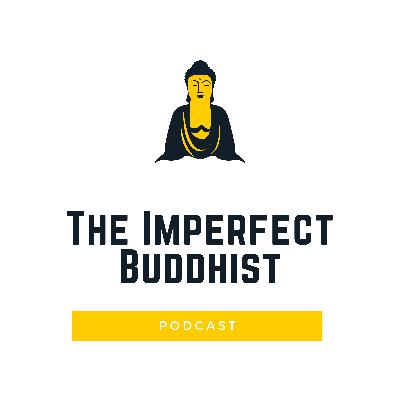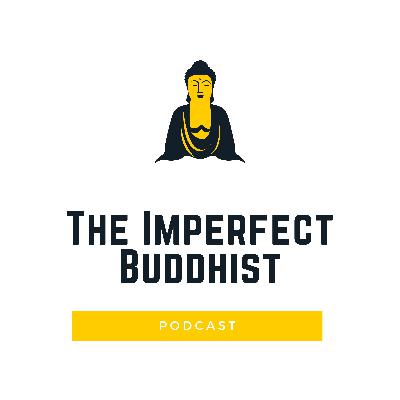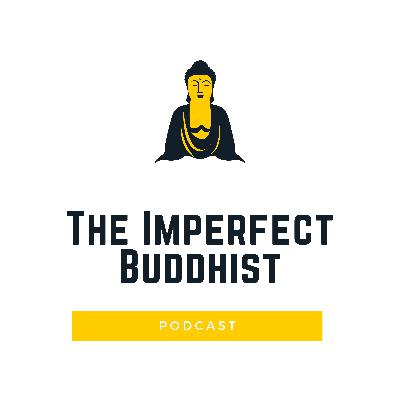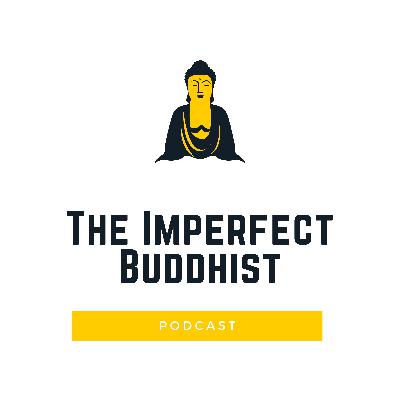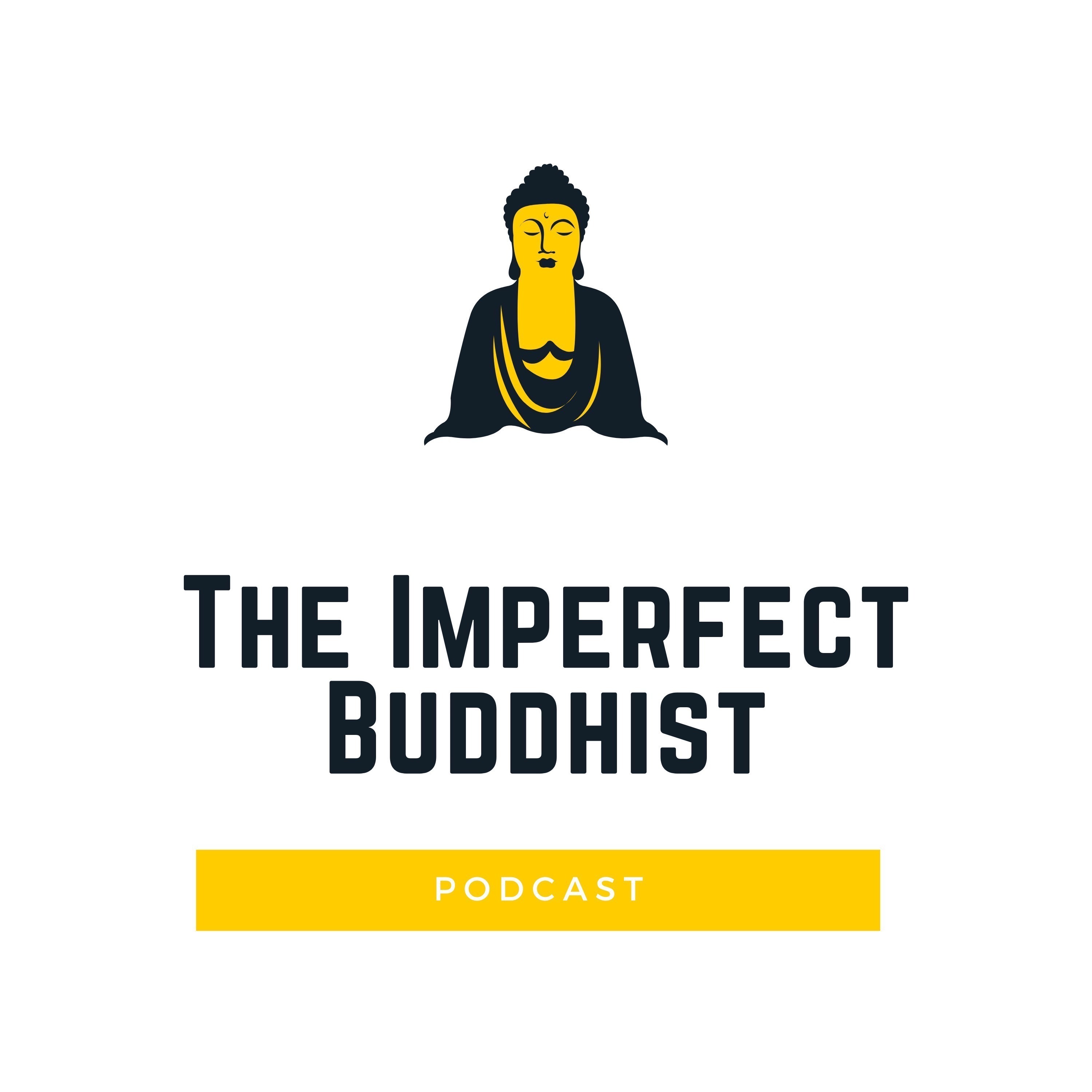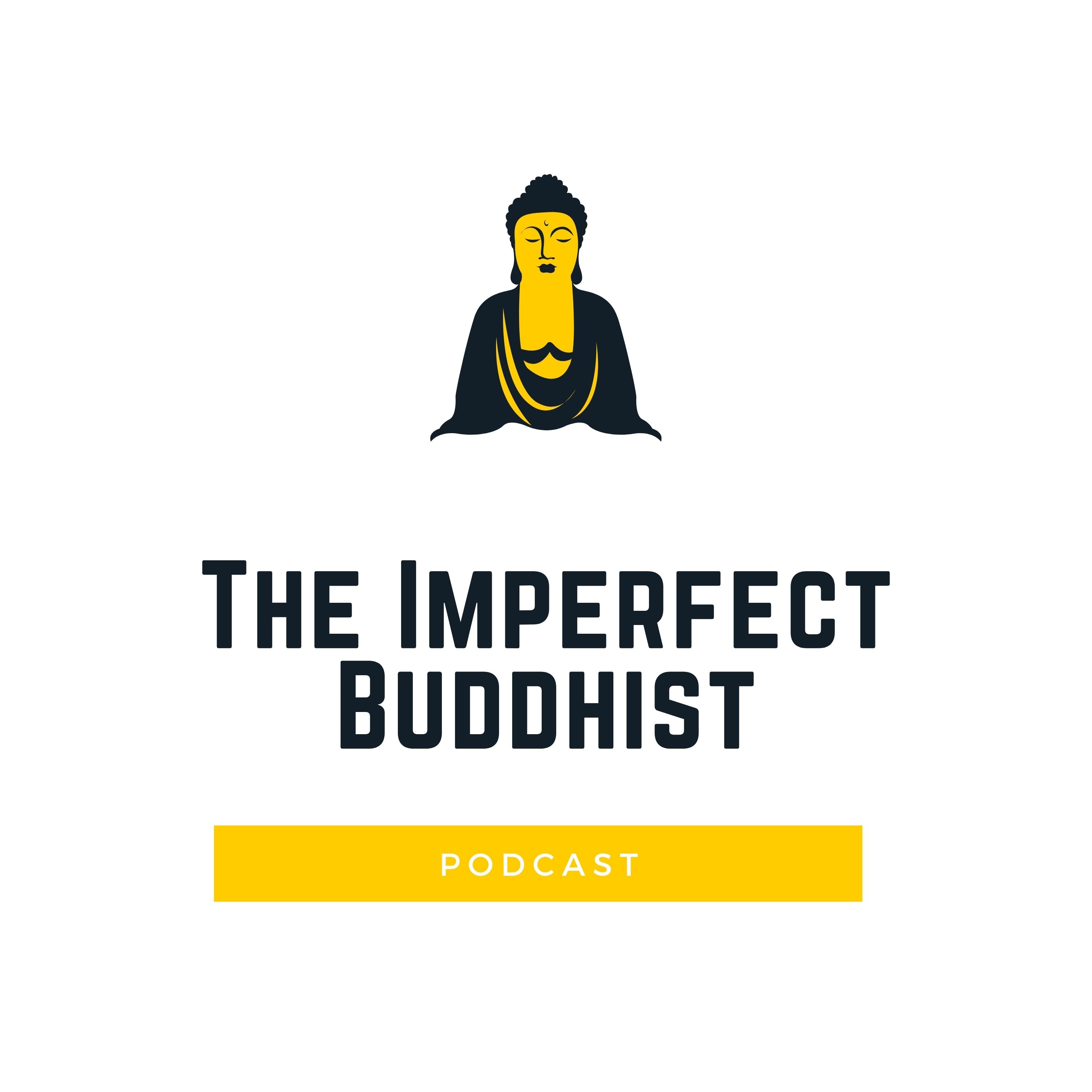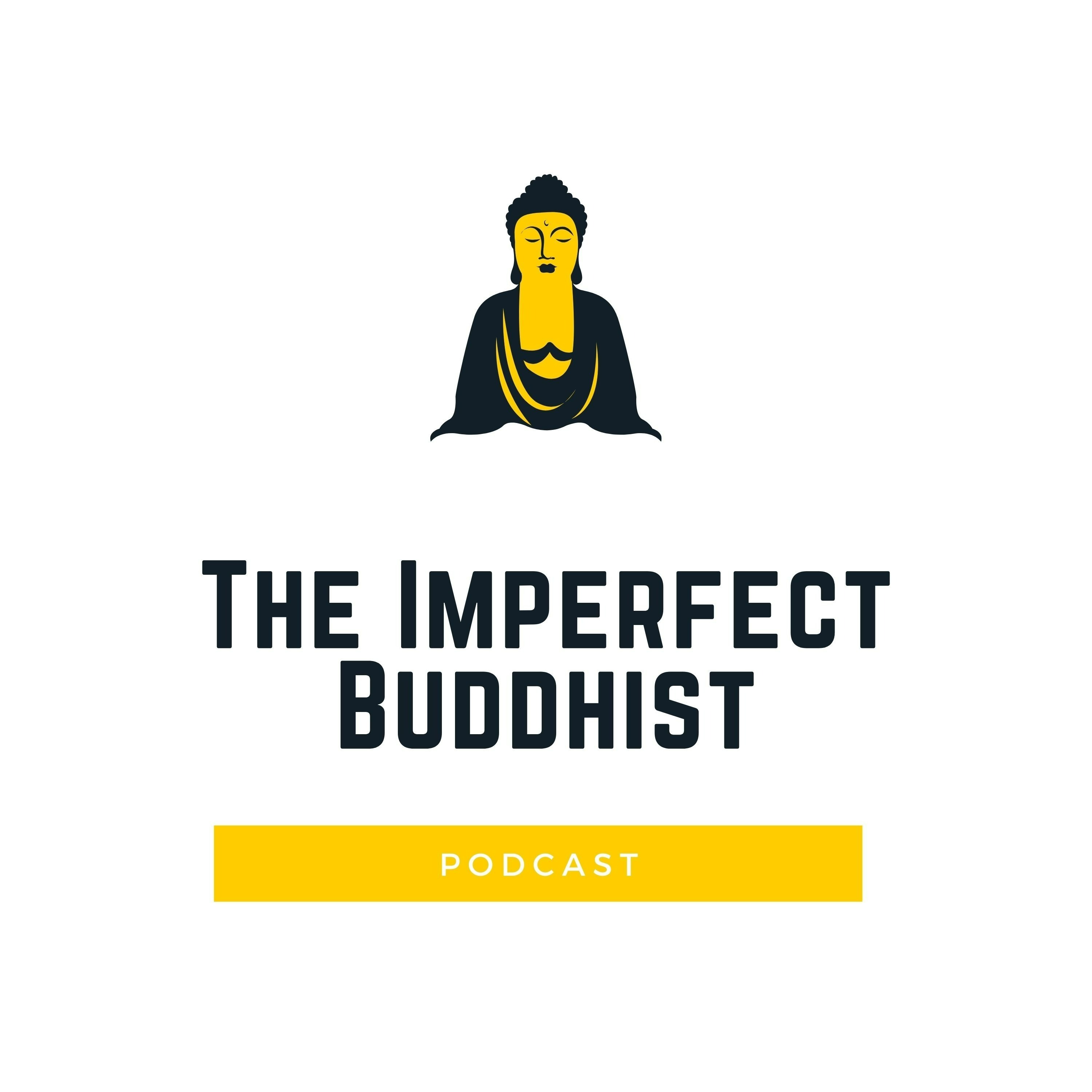Buddhism & The Sacred Power of the Present Moment
Description
Welcome to the Imperfect Buddhist, where we discuss present moment awareness and incorporating Buddhism into modern life. My name is Matthew Hawk Mahoney, and today's episode is titled, Buddhism and the Sacred Power of the Present Moment.
What is the present moment? It's this very instance, this little sliver of experience where everything's happening.
Living in our fast paced world, we're told we need to think about what we want to become when we get older. Most of us never really feel like we ever get older. We're always waiting for that big moment to come. The raise, the promotion, the perfect person to come into our life. That moment when we'll feel happy, completed, and everything will be just the way it should be. Our fast paced society doesn't leave a lot of room for the present moment. If someone's caught staring outside the window,
at wind rustling the leaves outside on a fall day? They might be asked, what are you looking at out there? Oh, you're daydreaming.
I was out to lunch with a friend. A couple weeks ago, Chris and I were sitting down to enjoy an Italian sub. We were talking about religion. Him and his partner are Christians and they've been practicing for a long time. I said, I really don't feel like what the heart of Zen Buddhism talks about is very religious. And I looked at him and I was like, where else do you think God is going to contact you?
Can God contact you in the future, worrying about the future, dreaming of the future? Is he going to contact you somewhere in the past in your mind? Or is God going to contact you now in this very moment, this present moment?
The heart of Zen Buddhism is cultivating and polishing our awareness and connection to what's happening around us and becoming more and more aware of the subtleties that exist on multiple levels beyond just the surface. The present moment holds huge transformational potential when we start to bring our attention to what is happening in our bodies, minds.
experiences, we start to see them as phenomenon. We start to see that thoughts come and go. We start to see that emotions come and go. We start to see the people come and go. We start to see that life conditions come and go. Rich, poor, sick, healthy, young, old. We come in contact with the transitory nature of life.
And so then we start to recognize that those things cannot be counted on for any type of security or self. Because if these things are all changing, then who are we?
Our sense of self begins to change and what we are is more and more revealed. We are the presence that is experiencing life, experiencing all these changes. We start to identify with the presence that witnesses all of phenomenon.
I read on a YouTube quote, one guy left a comment and he says, the longer I continue to do my spiritual practice, the more that I realize that true spirituality is not about becoming something you're not, but it's about letting go of what you're not until the true you is revealed. So that's why Zen Buddhism, it doesn't really force a whole lot down your throat. Yes, there's some precepts and there's some different teachings that you can read, but the real emphasis is on Zazen.
practice. The real emphasis is on sitting and being present. Because when you do that, all this stuff that's talked about by the Buddha, you start to experience it yourself. So there is no real need for someone to shove anything down your throat if you are experiencing it in your own practice. But where else can we connect with the sacred other than this present moment, this very instance? When we call it this instance, we lost it.
as James Brown would say, in the cut. I'm in the cut. You're in that very instant.
I remember early on in my practice, just noticing how my mind wanted to go off so much into the future, into the past, and daydream or complain. And I was really bringing my attention and my awareness into the sensations of the present, whether that was my breath or the sounds around me. I didn't have any significant experiences until one day I was in my sister's backyard in Lake Oswego, Oregon, walking around doing what I understand now was walking meditation.
And I remember my eyes catching this redwood tree and this sense of presence being there. I saw the tree as I normally would, but there was an extra depth, an extra layer to it that I connected with. When we try to put words to these experiences, sometimes we lose the significance of the experience. But the best way I can put it is that there was an extra dimension between me and the tree. And maybe it was just the opposite of that, that there was no me and the tree, that I was feeling a connection.
a oneness while looking at the tree. And there was not so much an observer and observed, but a connection with. In that moment, the tree seemed to breathe that there was a sense of liveness to this, what I would normally look at as like an inanimate object. That was my first lived experience of this new level of life that was around me and always happening that I hadn't been in contact with since childhood.
So when you think about whether you're Christian, Buddhist, Hindu, Jewish, when have those real special spiritual impactful moments happened to you? Were they somewhere while you were dreaming about the future or caught up in your past? Those significant lived moments where you felt a deep connection with the divine, where did that happen? You experienced them in the present. The gift of...
Present moment awareness is that it allows us to tap into and align ourselves with living a more sacred life. We open the possibility to have those experiences more often. We have to play to win. The main practice is zazen, where very little instruction is given. Most teachers will tell you as beginner to focus on your breath, the sensation of the in-breath, the space between the in-breath and the out-breath, and then the out-breath, the space between the out-breath and the in-breath.
and trying to continuously bring your attention back to just the sensations of breathing, the sound, and watching that breath.
There's another form of Zen meditation called Shikantaza, which is just sitting. And this is fully taking your open, spacious mind and receiving what is present. You're not focusing on any particular object of concentration, but you notice. With a wide sphere of receptivity, you notice and you hold your attention in that space for as long as possible.
So these are just a couple of examples of how Zen Buddhism has this focus on helping people cultivate a present moment awareness, where they can connect with the sacred. And the only place that it exists is now. Or as Thich Nhat Hanh would say, life is available only in the present moment.
Maybe you're saying to yourself, why would I want to go sit in silence in this Zazen thing? Why would I do that for hours or potentially days on a retreat? I want to read something from Dainin Katagiri. Hopefully I'm pronouncing his name right. I've been reading his book, Returning to Silence. He says, when you sit down in Zazen, you don't know why. If you think about it, you can come up with many reasons. But the reasons don't hit the mark exactly. You cannot ignore the reasons you have thought of because they are part of the truth, but not the complete truth.
What you want is just to be present, right in the middle of true reality, where you and Zazen exactly merge, nothing else. To sit Zazen is to call upon something, and to sit Zazen is exactly the something you are calling upon. You sit exactly in the middle of something you are always looking for and calling upon. We don't know what it is, but it is always there. If you sit down, you feel something, you taste it, by virtue of deeply seeing the human world.
of hearing the sound of the world, immediately we manifest ourselves with wholeheartedness. Whoever we are, whatever reason we have to decide to sit down, immediately we sit with our whole mind, our whole heart. Even for a moment, that's pretty good. Very naturally, all we can do is constantly return to the source of Zazen, which means Zazen based on casting off body and mind.
The key to awakening and connecting with the divine is the present moment. But you might say, man, there's nothing in my present moment other than stressful situations, mean people, bad food, messy home. But we learn in our spiritual lives that it is all usable and all workable. And if you have some struggle, you might be better off than someone that has a really perfect life because they're less pushed and less likely to seek.
Sometimes the present moment hurts. Sometimes the present moment isn't very fun, isn't very comfortable. Lately my wife and I have been cutting back on our TV usage as we've become aware that we've used it as a form of escapism. So a lot lately I've been confronted with myself more than normal outside of my normal meditation practices. And there's a feeling of fear inside. I'm recognizing that
because of past traumas and experiences that I've had, that there's a fear that I could lose it all, that this house that we bought and this marriage and love that we've built, our savings, all that stuff, it's just

